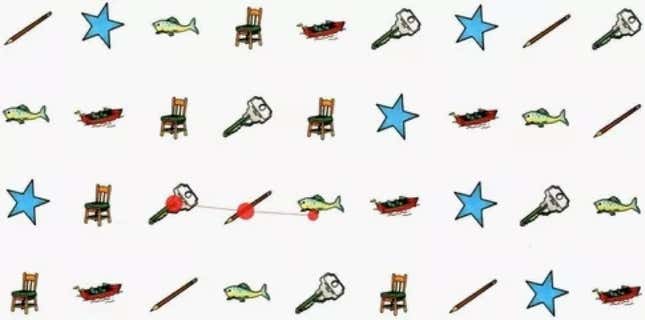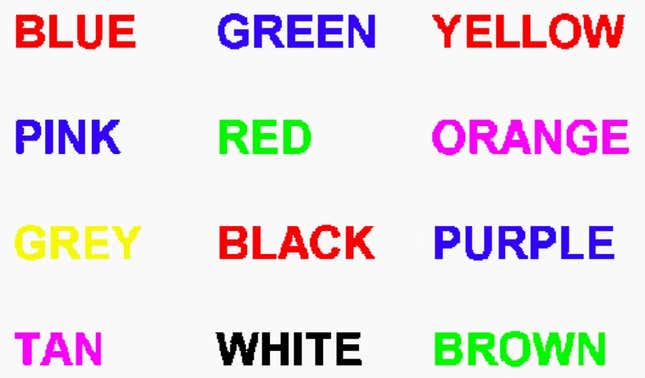This question originally appeared on Quora: What are some things that neuroscientists know but most people don’t? Answer by Lidia Stanton, psychologist, teacher, tutor, lecturer.
Neuroscientists and cognitive psychologists joke that reading is a form of brainwashing—one that is good for people, despite making us defenseless against an army of 26 letters.
Literate people only need to look at print to know what it says. If I put a word or two in front of your eyes, you’ll feel compelled to read it—your brain does it for you automatically before you decide whether to read or not. Try to force yourself not to read the sentence below while looking at it. Investigate the visual look of the words without reading them. Easy, or not?

People are much faster at reading than naming pictures. See how fast you can name all the pictures below without stumbling. You might be relatively fast (an average person would take around 10 seconds to complete the task, compared with three to five seconds if the pictures were words), but you wouldn’t say naming pictures is entirely automatic, would you?

The Stroop paradigm is a nice demonstration of how this problem works (see below). Try to correctly name the colour of the word (irrespectively of what it says) as fast as you can. The difficulty is that, before you name the color of the ink, you involuntarily read the word, and the meaning comes to mind unbidden. Once you have learned to read, you cannot help but read words.

We find this faster reading vs. naming problem astonishing because when we were children, it was the other way round. The learning-to-read process is irreversible. This is why it is a kind of “brainwashing”—the choice has been taken away from us.
You can follow Quora on Twitter, Facebook, and Google+.
More from Quora:
What are some easy things that you find hard?
What learning strategies do “quick learners” follow?
How can I motivate myself to study even if I’m not interested in education?




